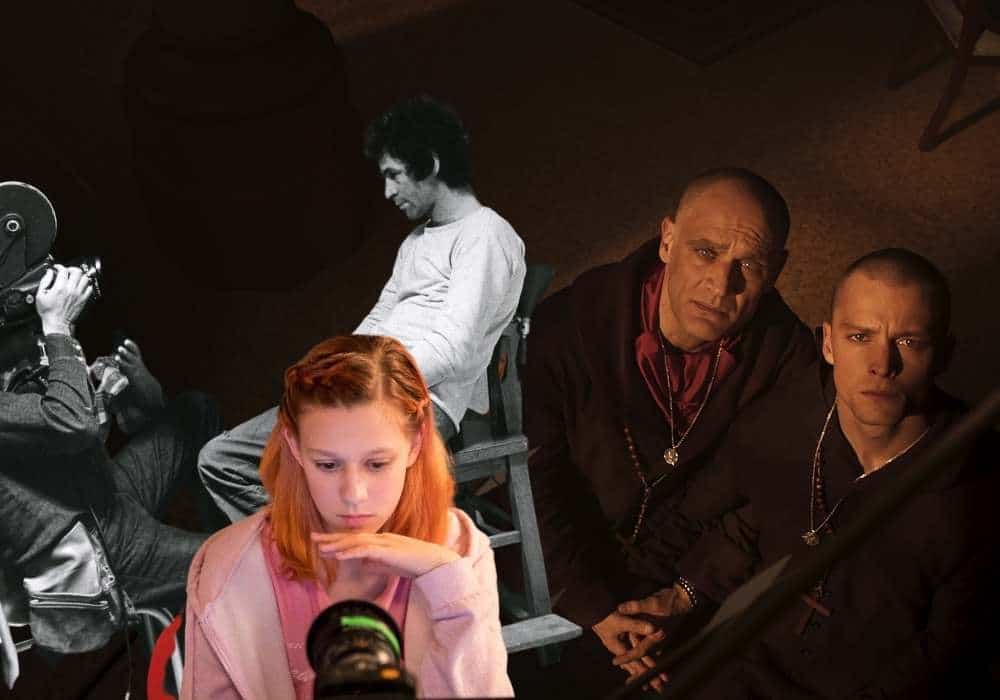Montreal’s Festival du nouveau cinema showcased international films, including The Crossing, Wood and Water, and Introduction, and homegrown talent with The Noise of Engines and The Left-Hand Side of the Fridge.
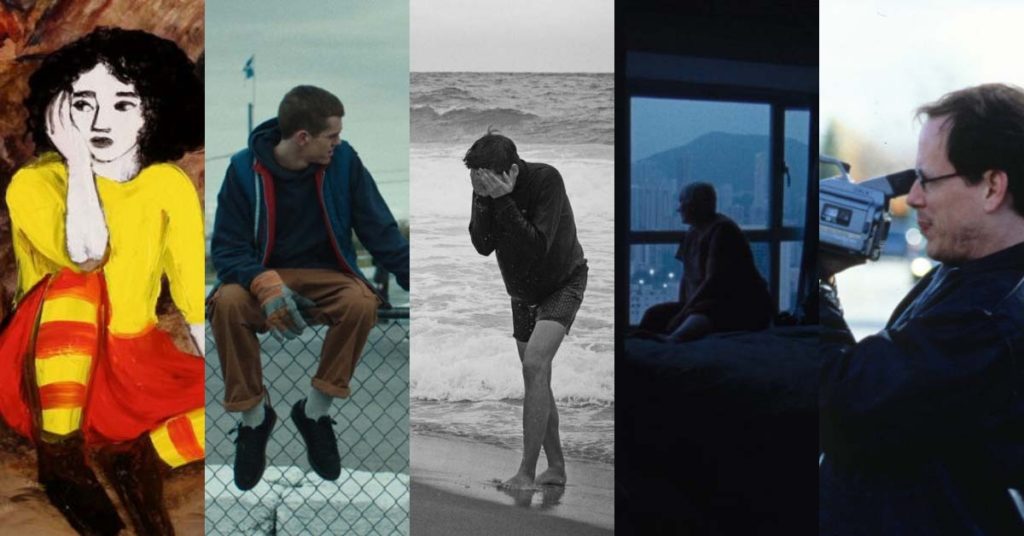
Discover one film you didn’t know you needed:
Not in the zeitgeist. Not pushed by streamers.
But still easy to find — and worth sitting with.
And a guide to help you do just that.
Montreal’s Festival du nouveau cinema (FNC) held its second Canada-wide online edition this year, and it continues to be the cooler, more avant garde sibling to the juggernaut Toronto International Film Festival (TIFF). While TIFF eschewed most Berlinale selections for world premieres and Cannes titles, FNC programmed almost everything from Berlin’s ‘Encounters’ section, its most experimental, with a handful of films from its other sections, too. The programming at FNC is so thoughtful and eclectic that you never know whether you’re going to be walking into a crowd-pleaser (e.g., Hit the Road), a cinematic innovator (or both), or slow cinema that is not for the faint of heart (e.g., the gorgeously shot sort-of meditation on colonialism Child of Plomo, which was not for me). One thing is for sure though: nothing about the festival’s program is boring or derivative.
Every year, it’s a showcase for some of the best titles out of Cannes, which this year included Ahed’s Knee (screened virtually), The Worst Person in the World (screened in theatres), and Hit the Road (also in theatres). It’s a showcase for exciting approaches to creative nonfiction. This year’s festival featured two films that were featured in the Case Study on animated documentary in our ebook Subjective realities: the art of creative nonfiction: 1970 and Archipelago. The festival was also the only one in Canada to program Berlinale Teddy Winner Miguel’s War, a film that featured both in our ebook Subjective realities and our summer workshop The 2021 Creative Nonfiction Workshop.
The festival also showcased exciting new restorations: last year’s edition included Out of the Blue (1980) and Quebec’s Les ordres (1974); this year’s included 4K restorations of Andrez Żulawski’s Possession (1981) and Philippe Falardeau’s The Left-Hand Side of the Fridge (2000).
The Left-Hand Side of the Fridge (Philippe Falardeau, 2000)
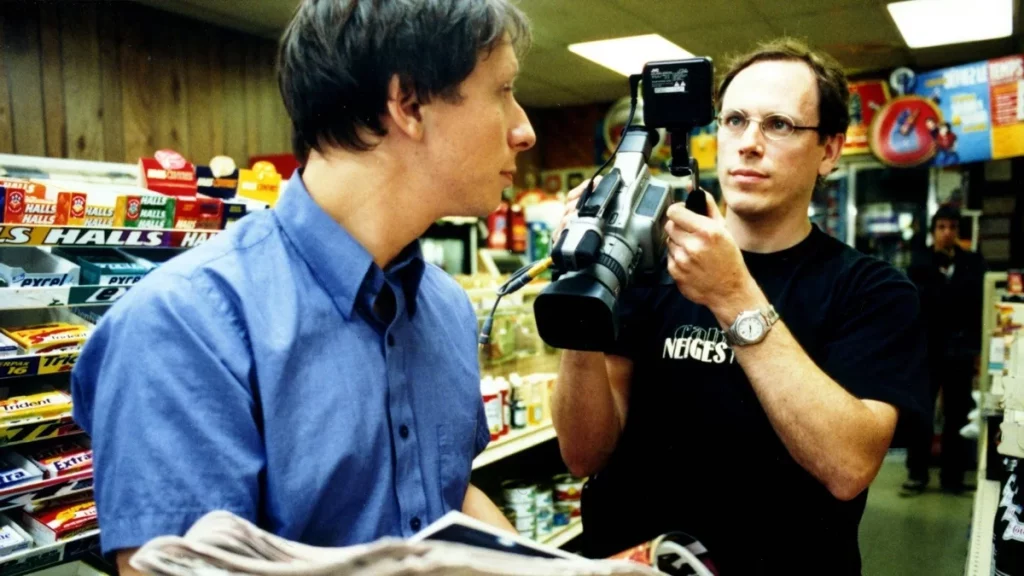
Writer-director Philippe Falardeau is one of Quebec’s foremost auteurs: his Monsieur Lazhar (2011) was nominated for an Oscar and has had wide-ranging influence on Canadian filmmakers, including Mina Shum. His My Internship in Canada (2015) is one of the funniest and sharpest films about the failure of (Canadian) democracy. And he’s worked extensively in the US with My Salinger Year (2020) and The Good Lie (2014).
Nevertheless, his first feature, The Left-Hand Side of the Fridge, has been impossible to find except on DVD at your local Canadian public library. It’s a mockumentary about an unemployed engineer, Christophe (Paul Ahmarani) who can’t find a job that interests him because he secretly doesn’t really want to be an engineer. That is, until now, with this beautiful 4K restoration, which I hope will become widely available soon. The film is ahead of its time: it’s about a man who discovers that the job he trained for isn’t one that interests him, and through self-imposed unemployment, he eventually figures that out; in this sense, he’s a lot like Julie in The Worst Person in the World.
Like all of Falardeau’s films that would follow, this light-hearted film exposes the outrageous bureaucracy that the unemployed are faced with: useless government advice, endless hoops to jump through, and the realisation that you can’t actually borrow money when you need money (only when you don’t). Of course, Christophe is being followed around by his documentarian friend with a camera, and there’s an irony to the fact that his friend has a government grant to document Christophe’s unemployment and job hunt.
Along the way, there are some great moments, like when Christophe must explain to his sister that, as a mechanical engineer, he can’t do anything useful, like fix her tractor, which would require a mechanic. I’m trained as an engineer, and when I was in engineering school, we used to have a running gag about who the ‘real engineers’ were, as in people who could actually fix your bike rather than, say, write a computer model to solve a problem. There’s also Christophe’s obsession with eating carrots which he buys by the dozen pounds, and later attributes to his orange-ish hue.
The restoration was funded by Telefilm Canada. Telefilm says each film will have a theatrical run and eventually be made available to broadcasters and streaming outlets, but dates for this are currently unknown.
The Crossing or La traversée (Florence Miailhe)
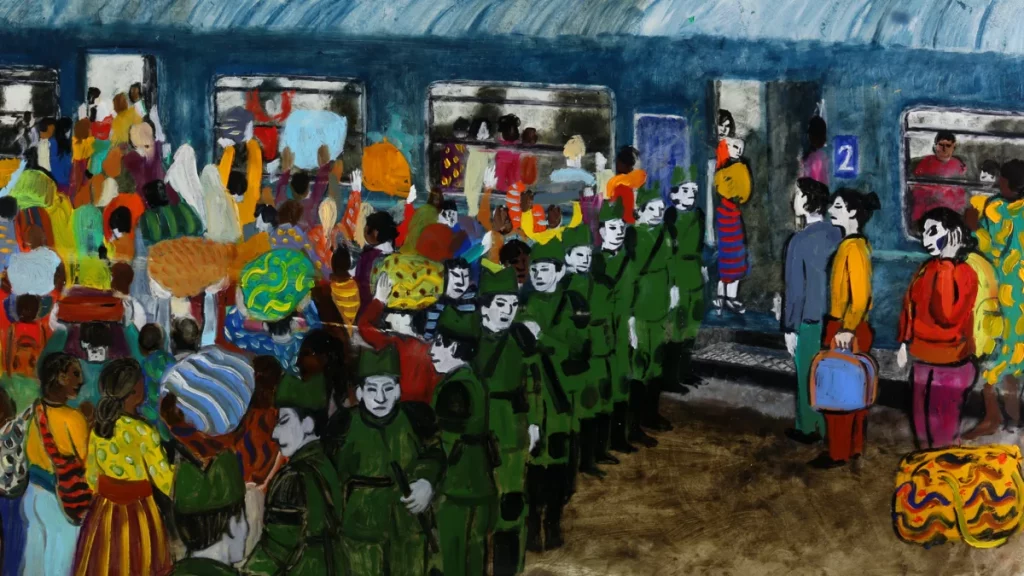
Florence Miailhe’s animated film The Crossing (La Traversée) would make for a great double feature with Oscar hopeful animated documentary Flee. Both films are memory pieces that look back on a young person’s flight from oppression and civil war, in search of a more stable home — and the people lost along the way. While the strength of Flee is the specificity of both Amin’s story and the research that went into getting all of the places and objects exactly right, the fiction film The Crossing is going for something more abstract, never naming the Eastern European country the protagonist is fleeing from nor the places she visits along the way.
What The Crossing lacks in specificity of place and time, it makes up for with the ingenuity of its animation, which is so colourful and free in a film about people who are struggling to keep their freedom. At the start of the film, Kyona (Emilie Lan Dürr) and her brother, Adriel (Maxime Gemin), return home from playing in a tree to discover a civil war is brewing and the family will be going on the run. After being quickly separated from their parents, they find various benevolent and not-so-benevolent hosts to feed and house them — until it’s no longer safe to stay. Throughout, they struggle with maintaining their identity when every host requires that they edit themselves.
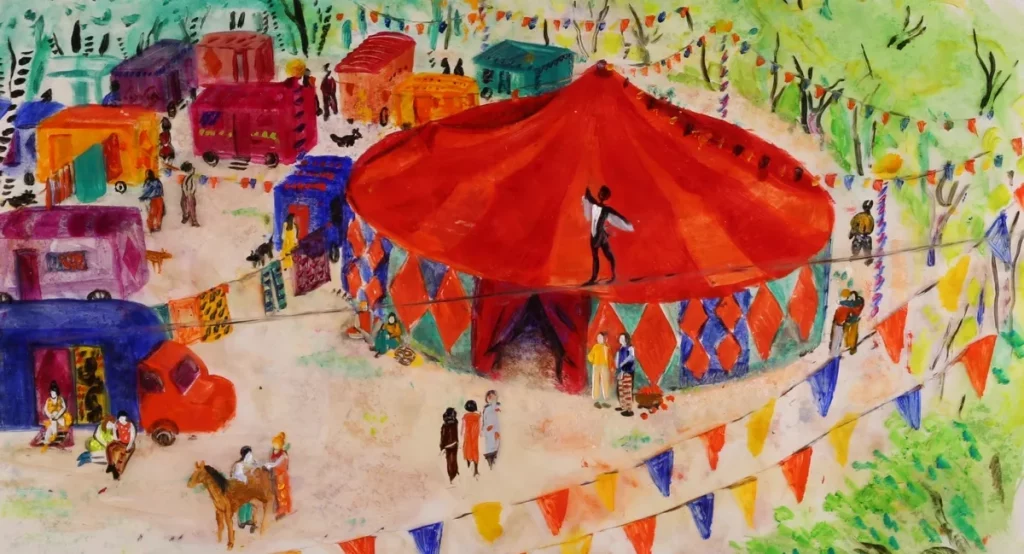
The Crossing premiered at the Annecy Animated Film Festival earlier this year, alongside other Seventh Row animated favourites Flee and Archipelago. Flee took home the top prize, Cristal for a Feature Film, while The Crossing took runner up with Jury Distinction. In another year, The Crossing might seem more groundbreaking than it does when up against Flee. Both are based on true stories; The Crossing loses something in the fictionalisation process which distances us from the characters and their plight whereas Flee puts us right in the muck with the characters.
The Crossing is still seeking international distribution outside of France. Sales are being handled by Indie Sales.
Wood and Water (Jonas Bak)
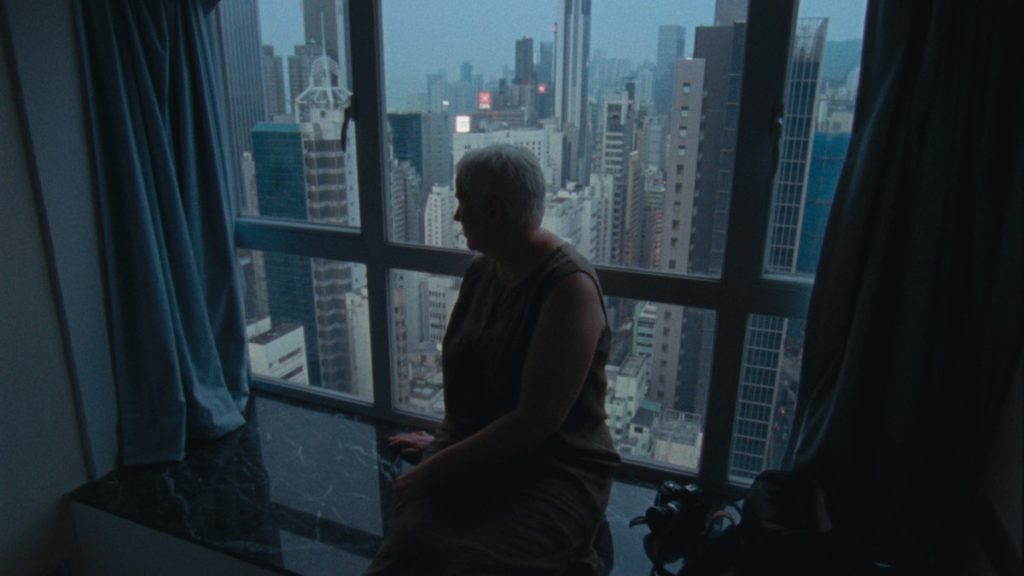
It’s hard to draw the line between fiction and nonfiction in Jonas Bak’s Wood and Water, in which he casts his mother as herself, Anke (Anke Bak), visiting her son in Hong Kong (where Bak used to live), but only seeing his apartment rather than him. His siblings also make guest appearances as themselves early in the film. To make Wood and Water, the pair travelled to Hong Kong amidst the 2019–2020 protests, which are documented on screen in the film. Bak’s interest in people’s relationships to places and the way that sound design defines place make this film very Akermanian in spirit. In the woods, where Anke lives in Germany, the quiet is defined by breezes and birds. In the city, in her son’s high rise apartment, she looks over the downtown from dozens of flights up, separated from the loud din of the city — until she opens a window.
Wood and Water is about exploring new places, longing for people and places, and the attempt to connect to people through the places that matter to them. When not knitting in her son’s apartment, Anke explores the streets, meets some locals, and ponders what has attracted her son to this city. In the process, there are sequences of exquisite beauty, like when Anke enters a highway tunnel in Germany, and Bak focuses on the pattern of lights in the ceiling, only to exit the tunnel in Hong Kong. The tall buildings define the landscape where tall trees did in Germany.
KimStim will release Wood and Water in 2022 in Canada and the US.
The Noise of Engines or Le bruit des moteurs (Philippe Grégoire)
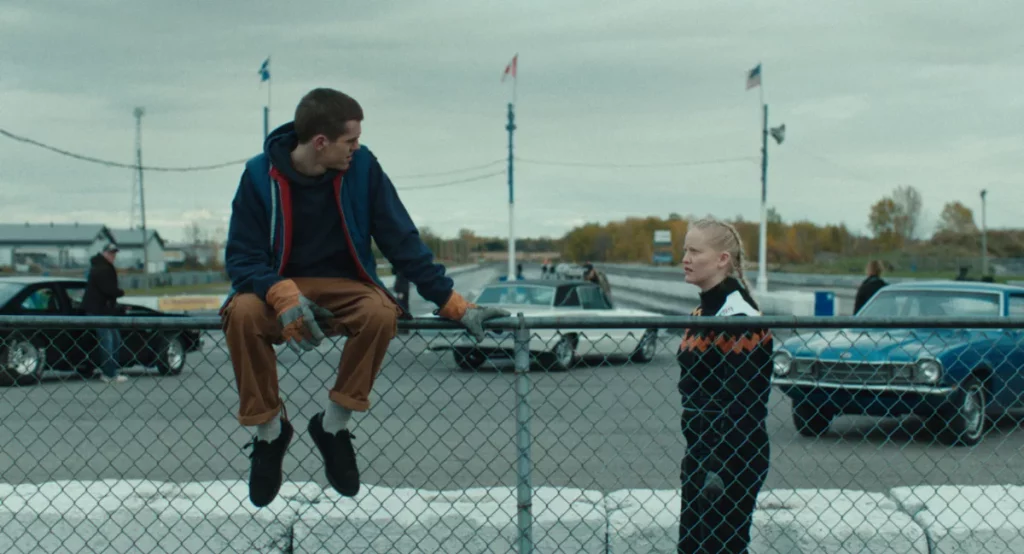
At this point, the Toronto International Film Festival may just about be the worst showcase for Canadian cinema among the national fall festival circuit. While festivals like Sudbury, Vancouver, Whistler, and FNC all screened some of the best Canadian films of the year — including Noise of Engines and Run Woman Run — TIFF somehow managed to screen most of the worst films. It’s one of the reasons that films like The Noise of Engines (Le bruit des moteurs) will opt, like Philippe Lesage (Genèse and Les démons) before it, to premiere at a festival like San Sebastian, which won’t bury it. All of this is to say, FNC’s programming has become crucial to watch if you want to catch the best — especially Québécois films — from Canada. And their October date means they can capture San Sebastian titles, like this one and Genèse, that skipped TIFF.
This deadpan look at the failure of Canadian government bureaucracy would make a good double feature with almost any of Falardeau’s work, but especially The Left-hand Side of the Fridge and My Internship in Canada. Based on writer-director Philippe Grégoire’s own experiences as a Canadian Customs officer, the film is the story of a bored Customs officer who teaches firearms training, and who gets into scrapes when he has sex with one of his students.
Thrown out of his job on probation, he returns home to the small town where he grew up, only to discover his mother has filled his room with pillows on which his face is printed, and that he doesn’t really know what he wants to do with his life. He’s followed by incompetent police officers who think he must be responsible for a local sex crime because pornographic drawings have been found in which he is featured. And he meets an Icelandic woman who is in town for the car racing, with whom he forms a tentative friendship, bonding over their love of, ‘the noise of engines.’ The Noise of Engines doesn’t quite stick the landing, but it’s certainly one of the funniest films of the year, along with fellow Québécois film Saint-Narcisse, and it’s brutally incisive in its send-up of how doggedly following the rules and protocol can lead to very silly decisions.
The Noise of Engines will eventually be released in Canada by H264 Distribution, but is still seeking international distribution.
Introduction (Hong Sangsoo)

The first of two Hong Sangsoo films to premiere in 2021, this one taking the Best Screenplay Award at Berlinale, made its Canadian debut at FNC, skipping TIFF. As a Hong skeptic — I loved Hill of Freedom, thought Another Country was OK, but have disliked almost every other film of his I’ve seen — I was pleasantly surprised to discover that this just might be my favourite of his films. Like the title suggests, this is a film of introductions between strangers: long scenes and long takes of awkward meetings and lonely encounters. The triptych is anchored by Young-ho (Seok-ho Shin), who appears in each segment: first, as the son of a doctor he never gets to see (he has a chat with his assistant, instead); as the obsessive boyfriend of the lead in the second segment who has just moved away to Berlin where she’ll be staying with her mother’s old friend; and finally, as an aspiring actor meeting an old pro, an introduction brokered by his mother.
As a conceit, documenting first encounters works quite well because it’s when people are at their most vulnerable and eager to please. Since the film is about introductions, there’s always a third party present, whose relationship to the two people introduced is always the fulcrum of the story. Black and white photography is in fashion this year — between C’mon C’mon, Belfast, and The Tragedy of Macbeth — but this may be one of the few films that earns it: because introductions share truths regardless of time, place, or colour, and the aesthetic works as a further stripping down of the story. Hong wants us to look at these people’s faces and bodies and see how they relate to each other in space. He rarely moves the camera, and he rarely cuts. That could be exhausting, but here, it’s an opportunity to explore character.
That said, Introduction is a film that screams, “I have a screenplay,” as the stripped down aesthetic forces you to fixate on the dialogue. So I can understand why it took home that prize at Berlin, even if I’d personally have gone for something else, like I’m Your Man or Petite Maman.
Cinema Guild will release Introduction in January in the US, and Acephale will release the film in Canada.
You could be missing out on opportunities to watch great films like Wood and Water and La traversée at virtual cinemas, VOD, and festivals.
Subscribe to the Seventh Row newsletter to stay in the know.
Subscribers to our newsletter get an email every Friday which details great new streaming options in Canada, the US, and the UK.
Click here to subscribe to the Seventh Row newsletter.


